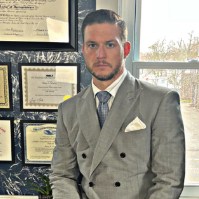Somerset Center Criminal Lawyer, Michigan
Sponsored Law Firm
-
 x
x

Click For More Info:
-
Law Office of Mark S. Guralnick
55 Madison Avenue 4th Floor Morristown, NJ 07960» view mapCriminal Defense Law Dedicated. Fearless. Successful.
Mark S. Guralnick and his legal team have helped clients throughout the USA and across the world by applying unparalleled dedication and hard work to each case.
800-399-8371
Daren Andrew Wiseley
✓ VERIFIEDCriminal, Constitutional Law, State Trial Practice, Civil Rights
As a Hillsdale County native, Daren Wiseley is thrilled with the opportunity to serve his home community. He focuses his practice on criminal defense ... (more)
Michael S. Rosenthal
Lawsuit & Dispute, Family Law, Criminal, Personal Injury
Status: In Good Standing
John J. Koselka
Divorce, Child Custody, Adoption, Criminal, Car Accident
Status: In Good Standing Licensed: 31 Years
Harvey A. Koselka
Family Law, Divorce & Family Law, Criminal, Civil & Human Rights, Accident & Injury
Status: In Good Standing Licensed: 65 Years
Adrienne L. Iddings
Estate, Family Law, Divorce & Family Law, Criminal
Status: In Good Standing Licensed: 30 Years
Todd Michael Morgan
Federal Appellate Practice, Family Law, Divorce, Criminal
Status: In Good Standing
Margaret M. S. Noe
Dispute Resolution, Family Law, Criminal, Collection
Status: In Good Standing Licensed: 40 Years
 Mark Guralnick Morristown, NJ
Mark Guralnick Morristown, NJ AboutLaw Office of Mark S. Guralnick
AboutLaw Office of Mark S. Guralnick Practice AreasExpertise
Practice AreasExpertise

